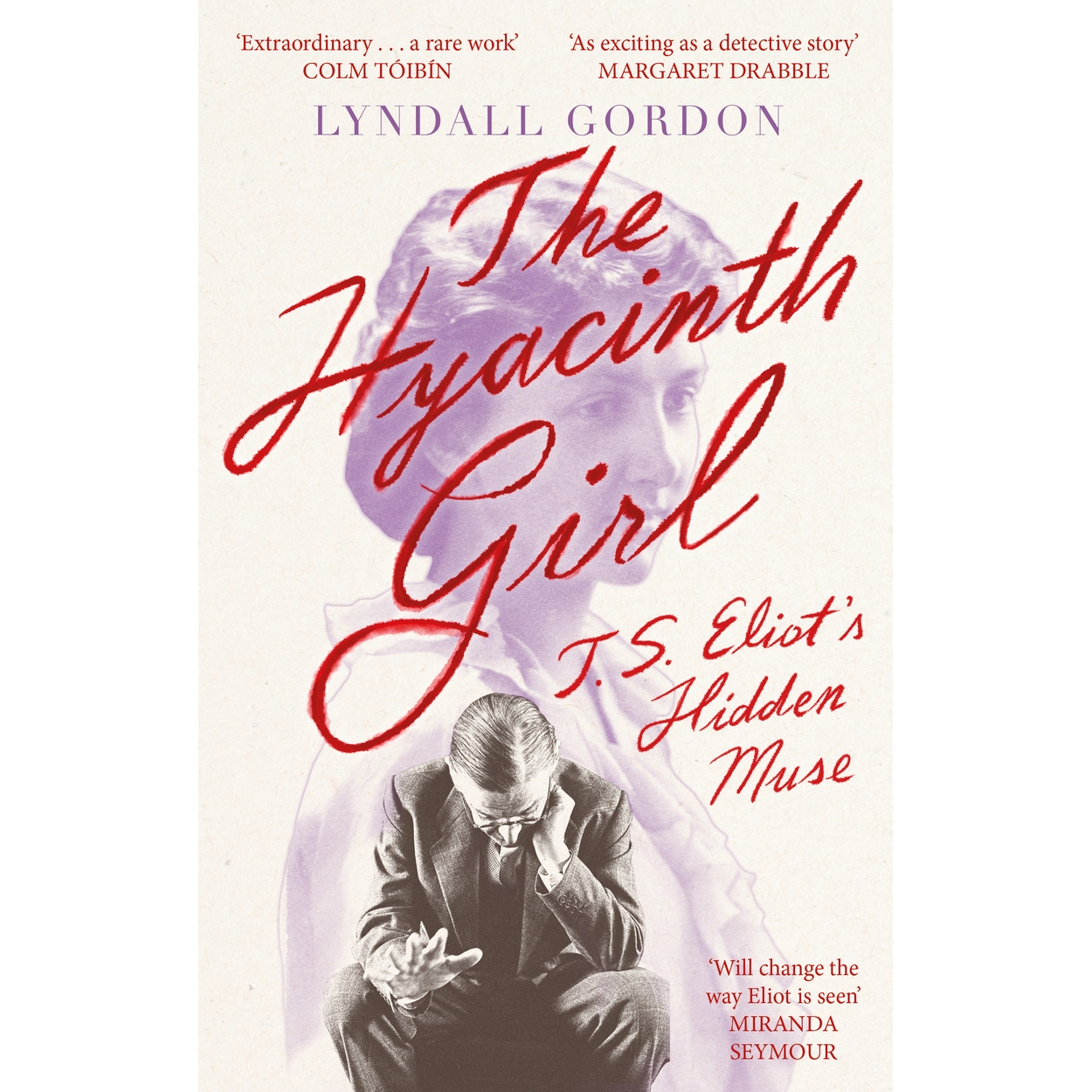The Hyacinth Girl
The Hyacinth Girl: T. S. Eliot's Hidden Muse | By Lyndall Gordon
Among the greatest of poets, T. S. Eliot protected his privacy while publicly associated with three women: two wives and a church-going companion.
This presentation concealed a life-long love for an American: Emily Hale, a drama teacher to whom he wrote (and later suppressed) over a thousand letters. Hale was the source of "memory and desire" in The Waste Land; she is the Hyacinth Girl. Drawing on the dramatic new material of the only recently unsealed 1,131 letters Eliot wrote to Hale, leading biographer Lyndall Gordon reveals a hidden Eliot.
Emily Hale now becomes the first and consistently important woman of life -- and his art. Gordon also offers new insight into the other spirited women who shaped him: Vivienne, the flamboyant wife with whom he shared a private wasteland; Mary Trevelyan, his companion in prayer; and Valerie Fletcher, the young disciple to whom he proposed when his relationship with Emily foundered. Eliot kept his women apart as each ignited his transformations as poet, expatriate, convert, and, finally, in his latter years, a man `made for love.'Emily Hale was at the centre of a love drama he conceived and the inspiration for the lines he wrote to last beyond their time.
To read Eliot's twice-weekly letters to Emily during the thirties and forties is to enter the heart of the poet's art.
The Hyacinth Girl: T. S. Eliot's Hidden Muse | By Lyndall Gordon
Among the greatest of poets, T. S. Eliot protected his privacy while publicly associated with three women: two wives and a church-going companion.
This presentation concealed a life-long love for an American: Emily Hale, a drama teacher to whom he wrote (and later suppressed) over a thousand letters. Hale was the source of "memory and desire" in The Waste Land; she is the Hyacinth Girl. Drawing on the dramatic new material of the only recently unsealed 1,131 letters Eliot wrote to Hale, leading biographer Lyndall Gordon reveals a hidden Eliot.
Emily Hale now becomes the first and consistently important woman of life -- and his art. Gordon also offers new insight into the other spirited women who shaped him: Vivienne, the flamboyant wife with whom he shared a private wasteland; Mary Trevelyan, his companion in prayer; and Valerie Fletcher, the young disciple to whom he proposed when his relationship with Emily foundered. Eliot kept his women apart as each ignited his transformations as poet, expatriate, convert, and, finally, in his latter years, a man `made for love.'Emily Hale was at the centre of a love drama he conceived and the inspiration for the lines he wrote to last beyond their time.
To read Eliot's twice-weekly letters to Emily during the thirties and forties is to enter the heart of the poet's art.
The Hyacinth Girl: T. S. Eliot's Hidden Muse | By Lyndall Gordon
Among the greatest of poets, T. S. Eliot protected his privacy while publicly associated with three women: two wives and a church-going companion.
This presentation concealed a life-long love for an American: Emily Hale, a drama teacher to whom he wrote (and later suppressed) over a thousand letters. Hale was the source of "memory and desire" in The Waste Land; she is the Hyacinth Girl. Drawing on the dramatic new material of the only recently unsealed 1,131 letters Eliot wrote to Hale, leading biographer Lyndall Gordon reveals a hidden Eliot.
Emily Hale now becomes the first and consistently important woman of life -- and his art. Gordon also offers new insight into the other spirited women who shaped him: Vivienne, the flamboyant wife with whom he shared a private wasteland; Mary Trevelyan, his companion in prayer; and Valerie Fletcher, the young disciple to whom he proposed when his relationship with Emily foundered. Eliot kept his women apart as each ignited his transformations as poet, expatriate, convert, and, finally, in his latter years, a man `made for love.'Emily Hale was at the centre of a love drama he conceived and the inspiration for the lines he wrote to last beyond their time.
To read Eliot's twice-weekly letters to Emily during the thirties and forties is to enter the heart of the poet's art.

